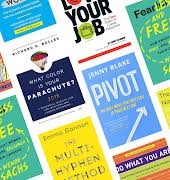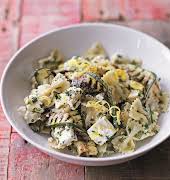
By IMAGE
02nd Jan 2016
02nd Jan 2016
What if you could de-stress, double your energy and find contentment in just a few short steps? ANNA HART examines the new self-help trend taking the world by storm: gratitude.
When was the last time you popped a cork to celebrate something? In my decade as a journalist, I’ve never once gone out with friends to celebrate a new job, promotion or some other professional triumph. Those glass-clinking scenes in American sitcoms are alien to me. Celebration is a lost art, I suspect, for many of my peers, because by the time the contract has been signed, emotionally we’ve moved on. We’re wondering if we should have negotiated a higher salary. We’re worrying whether we’re up to the job. There’s no room for a retrospective back-pat; we’re focused on the next stressful hurdle demanding our attention.
I’ll inwardly moan about how my partner never plans a night out until he reminds me that he did, actually, the previous weekend. I’ll convince myself that I’ve been too busy to go to the gym for ages, when I was there three mornings ago. My ?inner voice?, to use the phrase popularised by self-help gurus, sounds like a nervy, forgetful ingrate.
If in the past few years, we have been bombarded by the benefits of ‘mindfulness? – been there, bought the app – then brace yourself, because ?gratitude? is the new self-help buzzword of the moment. A clutch of recent studies by august institutions have linked gratitude to wellbeing, both physical and mental: in April, the American Psychological Association (APA) reported a study showing that ‘more gratitude was associated with better mood, better sleep, less fatigue and lower levels of inflammatory biomarkers related to cardiac health?.
As with mindfulness, gratitude has swiftly been commodified, parcelled up and marketed: there are already 163 gratitude apps in the App Store, and an Amazon search yields 20,451 books and audio guides, only 2,000 short of those on mindfulness. Now, a new book detailing writer Janice Kaplan’s year of ?living gratefully?, The Gratitude Diaries (Yellow Kite, approx €20.50), is added to an already well-populated shelf in the self-help section. Bestsellers include The Happiness Project One-Sentence Journal: A Five-Year Record by Gretchen Rubin, and Rhonda Byrne’s The Secret Gratitude Book. There has also been an outbreak of words such as ?humbled? and ?thankful? in celebrity interviews, Tweets and Instagram posts, because Hollywood has embraced gratitude like it embraced juicing. From Jennifer Lopez to Justin Bieber to Katy Perry, you can barely move for posts from the hugely successful proclaiming themselves to be #blessed and #grateful.
Carla White is the founder and developer of the first gratitude app, Gratitude Journal (via her company Happy Tapper). An online gratitude journal that allows you to record five things daily that you are thankful for, it sends regular reminders to count your blessings and upload Instagram shots of them. To date, the app has been downloaded 250,000 times.
?A few years ago, I lost my father, and then our business failed, and I spiralled into a deep depression,? White says. ?I read self-help books and nothing stuck, but I figured that, lazy as I am, I could spare a few moments each day to keep a gratitude journal.? Two months later, White’s depression had lifted, she was healthier, she had new job prospects – and the only thing she had done differently was to keep the journal. ?I’m not one of those new-age people, but it worked for me, and I was inspired to develop this app. [Practising] gratitude is so easy, but it has such a huge impact on our lives.? She rattles off numerous testimonials, including a gay, bullied teenage boy who said it helped him find the courage to come out.
?Meditation is a much more difficult practice to get into,? White acknowledges when I ask if gratitude is the lazy girl’s mindfulness. ?Gratitude demands only a few minutes of your time, and you’ll see results fast.?
I first started to pay attention to gratitude – or, to be precise, what an ungrateful brat I am – a year ago when I interviewed the psychologist Brene? Brown, the author of two New York Times bestsellers: The Gifts of Imperfection (2010) and Daring Greatly (2012). In an off-topic aside, she said, ?It’s not possible to be stressed about something when you’re being grateful for it.? Her words sunk in, because I am an indefatigable stress-head and a mindfulness dropout. Meditation just doesn’t work for me; instead of relaxing, I make mental to-do lists or work myself up about some tiny perceived injustice or personal failing. As soon as I got off the phone to Brown, I tried it. Instead of the usual panicked thoughts (?Crap, I have so much to do?), I forced myself to be positive. ?That was a thoroughly interesting interview with an incredibly smart woman,? I said to myself, feeling like a loon. ?And now I get to whittle it into an article and make her insights accessible to thousands of readers!?
I realise this sounds as if a Californian yoga teacher had staged a coup in my brain. As adults, we have hashtags such as #humblebrag to keep us firmly in our places. And I know that I police my thoughts for smugness or boastfulness with the same severity as I do my words; I can’t even express pride in the privacy of my own mind.
But thinking gratefully worked. Right away. Suddenly my day ahead wasn’t littered with obstacles, it was a trail of treats. I knew I was tricking myself, like a small child being told to play a new game of ?tidy up the playroom?.
But knowing that didn’t stop it working, and in ten years of researching and writing about social trends and popular psychology, this was the first time I’d been genuinely amazed.
I began using the technique in other areas of my life. If my partner annoyed me, I’d take a moment to reflect on how grateful I was for him, and the irritation would evaporate. I even used it to quell my fear of flying, by convincing myself I was excited rather than terrified. It was exhilarating to find a simple technique that had the power to change how I felt about the day ahead, the person next to me, and my current life circumstances.

The psychology establishment has only recently begun to take gratitude seriously. Over the past decade, psychologists have developed ?appreciation scales? to measure how
?grateful? a person is. In 2005, a team led by Martin Seligman and Tracy Steen at the University of Pennsylvania formulated a list of six ?gratitude exercises?, including keeping a gratitude journal and writing a letter to someone for whom they are grateful, to deliver by hand. Of all the ways of practising gratitude, writing three things daily in a journal proved most effective, long-lasting and easy to stick with. As gratitude is thought to serve as a buffer by enhancing the ?coding? (understanding) and ‘retrievability? (memory) of positive experiences, psychologists have high hopes for it in the treatment or prevention of clinical depression. Gratitude is hardly a new notion. If mindfulness essentially repackaged Eastern meditation as a secular health intervention that wouldn’t spook sceptical Westerners, the gratitude movement may just do the same for organised religion. Gratitude is perhaps the most universal religious sentiment and the cornerstone of most world religions.
My father is a Presbyterian minister, so part of me balks at the commercialisation of a simple practice derived from ancient spiritual and moral traditions. Is ?gratitude? destined to be not merely secularised, but monetised, corporatised, co-opted into therapy, streamlined, neutered and generally manufactured into a self-help consumer product? Why is practising religion considered scientifically unsound and almost embarrassing, while practising ?gratitude? or ‘mindfulness? carries social and intellectual kudos?
I can, however, see that user-friendly apps, TED Talks and scientific studies are bringing the idea of gratitude to people who, for whatever reason, don’t recite the Lord’s Prayer. And today we need gratitude more than ever, because I’m not the only ungrateful brat in town.
As Jo Usmar, the co-author of This Book Will Make You Confident, points out, we are primed to focus on what we don’t have: ?It’s a survival mechanism to always be looking for the next big threat, or focusing on what we don’t have. Even if you’re brilliant at your job and in a secure position, wage freezes and cutbacks mean there’s constant pressure not to slip, so we never really give ourselves credit for what we’ve achieved.?
Failing to be grateful deprives us of a sense of personal victory, so we feel unfulfilled and insecure even when we’re doing great
Failing to be grateful deprives us of a sense of personal victory, so we feel unfulfilled and insecure even when we’re doing great,? she adds. ?Feeling proud of yourself is a key part of confidence and happiness. It’s essential for a positive outlook.? Carla White admits that when she began developing her app, she ‘struggled? with the ethics of digitising and monetising something that she felt was sacred. And, of course, sending gratitude out into the brave, new, volatile world of social media doesn’t always work. In 2013, a 27-year-old Zurich resident, Dmitry Golubnichy, decided to lift himself out of a ‘sadness slump? by posting daily pictures of things he was happy about with the hashtag #100happydays. The idea went viral: by the summer of 2014, the hashtag had been used on Instagram 9.2 million times – although 71 per cent of those who set themselves the challenge had failed, citing ?no time? as the reason. Friends of mine who tried it and failed were honest enough to cite their reason as ?feeling embarrassed to sound like a smug bastard?.
As a pure emotion, gratitude is not the same as smugness; the former stems from humility, the latter from conceit. But on social media, the lines become blurred. Is a celebrity who Tweets a bikini selfie in St Barts with the hashtag #blessed humble or conceited?
You decide …
BY Anna Hart
This article was originally published in the October issue of IMAGE Magazine.


























